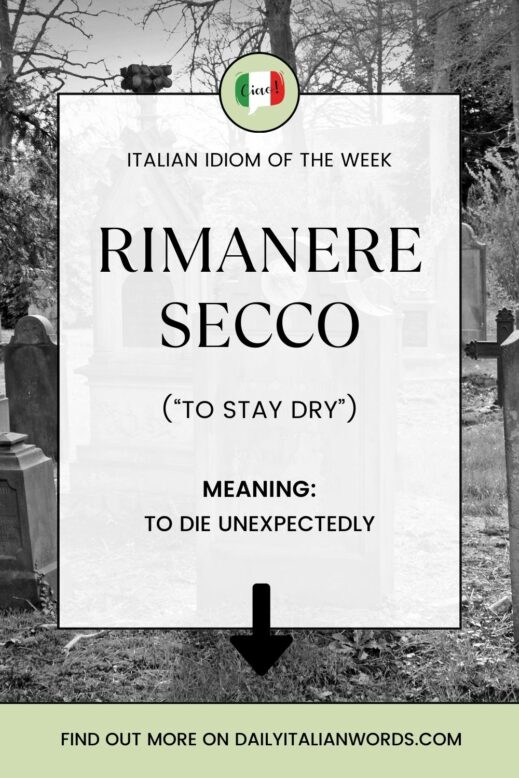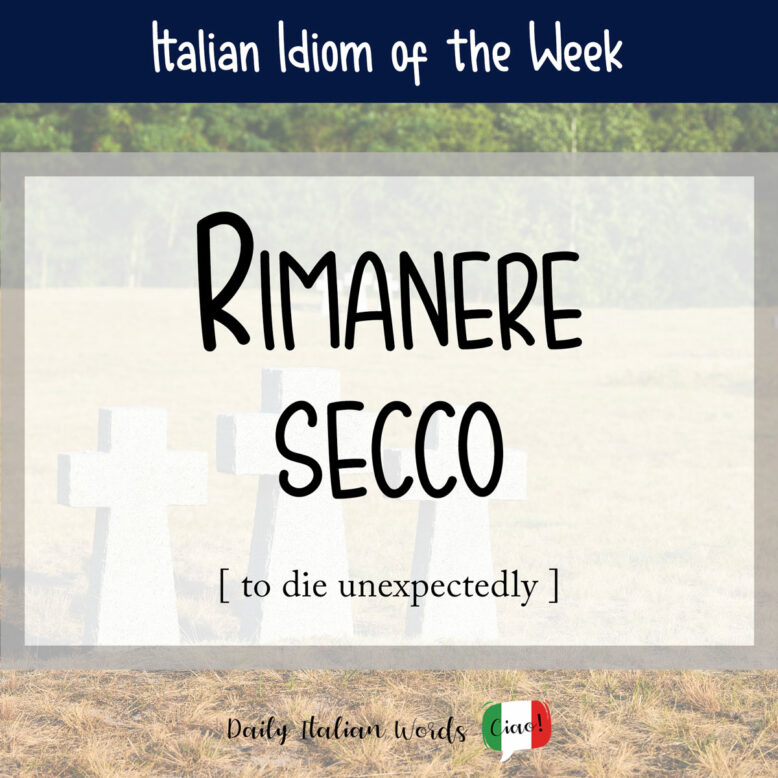In Italian, there’s an idiomatic way to express someone’s unexpected death: rimanere secco, which literally translates to “to be left dry.”
rimanere secco
to die unexpectedly

The verb rimanere can be substituted with restare (to stay) without altering the meaning. Additionally, you can use the pronominal verbs rimanerci and restarci, incorporating the particle ci. The meaning remains identical, with the inclusion of ci providing some additional emphasis.
rimanere secco
restare secco
rimanerci secco
restarci secco
Se continui ad agitarti così, ti garantisco che ci rimarrai secco.
If you keep fussing like this, I can guarantee that you will kick the bucket.

It might be tempting to wrap up the article here, but there are two more idiomatic expressions closely resembling rimanere secco. It’s worth exploring them to avoid any confusion!
Firstly, there’s rimanere (or restare) a secco, featuring the preposition a (to). In this context, it means “to run out” and can apply to various situations, with the most common being money, food, gas or resources. Note that the particle ci cannot be used here.
rimanere a secco
restare a secco
La mia macchina è rimasta a secco. Dov’è il benzinaio più vicino?
My car has run out of gas. Where is the closest gas station?
Cavoli, sono rimasto a secco. Mi puoi prestare €10?
Darn, I’ve run out of money. Can you lend me €10?

And if that weren’t confusing enough, there’s a third idiom that switches out a for the preposition in: rimanere (or restare) in secco (or in secca). This idiom means “to run aground and be unable to move due to a lack of water” in boating terminology.
This idiom should not be confused with rimanere or restare di stucco, which means to be stunned or flabbergasted.

Heather Broster is a graduate with honours in linguistics from the University of Western Ontario. She is an aspiring polyglot, proficient in English and Italian, as well as Japanese, Welsh, and French to varying degrees of fluency. Originally from Toronto, Heather has resided in various countries, notably Italy for a period of six years. Her primary focus lies in the fields of language acquisition, education, and bilingual instruction.


